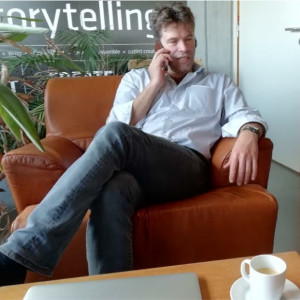 \
&
Contact us
\
&
Contact us
 \
&
Contact us
\
&
Contact us
Published on | 6 months ago
Programmes ERCA new study has found that children born today are likely to experience significantly more exposure to extreme climate events over their lifetime than previous generations - unless global greenhouse gas emissions are substantially reduced.
Using climate model projections and global demographic data, the researchers assessed exposure to six types of climate extremes: heatwaves, droughts, wildfires, crop failures, river floods, and tropical cyclones across three warming scenarios: 1.5°C, 2.7°C, and 3.5°C above pre-industrial levels by the end of the century.
The research was conducted by an international team from Vrije Universiteit Brussel (VUB), Environment and Climate Change Canada, KU Leuven, the Royal Meteorological Institute of Belgium (RMI), and ETH Zurich. The funding which among others contributed to the study comes from the ERC Consolidator Grant LAgrangian Climate Risk and Impact Attribution LACRIMA, led by Principal Investigator Wim Thiery (VUB).
More information about the study and its findings can be found in this ERC news article and this article published in Nature and this report published by Save the Children.
We offer news and event updates, covering all domains and topics of Horizon Europe, Digital Europe & EDF (and occasionally, for ongoing projects, Horizon 2020).
Stay informed about what matters to you.
By signing up, you can opt in for e-mail notifications and get access to
a personalised dashboard that groups all news updates and event announcements in your domain(s).
Only for stakeholders located in Flanders

If you’ve never heard of Limecraft, you’re clearly not working in the media sector. Their SaaS platform provides integrated workflows for media management, scripted and unscripted TV, and subtitling and localisation. It is used by leading broadcasting companies – such as BBC, VRT, NPO… – and production firms of which De Mensen or Hotel Hungaria might ring a bell (at least if you are Belgian).
NCP Flanders went to Ghent to interview Maarten Verwaest, CEO and cofounder, about how he sees Horizon 2020. Limecraft is a partner in the MeMAD project, which is a collaborative RIA project submitted to an ICT call topic.